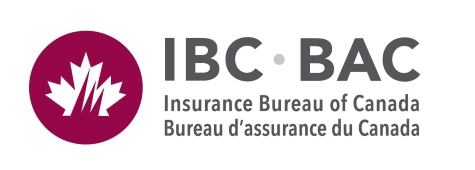Tips to prepare and protect yourself when "the big one" hits
VANCOUVER, May 5, 2014 /CNW/ - At the start of Emergency Preparedness Week, Insurance Bureau of Canada (IBC) reminds British Columbians to protect themselves, their homes and their businesses in the event of an earthquake.
"The 6.6 magnitude earthquake that struck near Port Alice on April 23rd acts as a stark reminder to us all that British Columbia is located in a significant seismic area and that the risk of a major destructive earthquake is very real," says Bill Adams, IBC Vice-President, Western and Pacific. "The question is not if, but when, the next major quake will happen. Take a few minutes during Emergency Preparedness Week to learn how to protect yourself and keep your family safe," he adds.
As part of its consumer outreach programs to promote earthquake awareness, IBC is the presenting sponsor of The Great British Columbia ShakeOut, held annually across the province since 2011. It's the largest earthquake drill in Canada with hundreds of thousands of people who "drop, cover and hold on" in their homes, schools, businesses and offices. The drill helps British Columbians and their families prepare to protect themselves when an earthquake occurs.
IBC offers the following tips on how to prepare for an earthquake and what to do after the shaking stops:
- Know the safe and dangerous places in your home.
- Don't forget to practice - Drop, Cover, and Hold On.
- Have an emergency plan in place and practice evacuation routes. Arrange an out-of-the-area contact (e.g. in the interior if you live on the coast). Each family member should carry the contact phone number and address.
- Talk to your family about what to do if they are at home, school, or at work and the quake separates your family.
- Prepare an emergency kit that will help sustain every member of your family for at least 72 hours. Tell everyone in the household where the kit is and how to use it. Contents should at a minimum include:
- At least 4 litres of water per person per day
- Food that won't spoil (canned food, energy bars and dried food)
- Manual can opener
- Crank or battery operated flashlight (and extra batteries)
- Crank or battery operated radio (and extra batteries)
- First aid kit
- Extra keys to your house and car
- Some cash (in small bills and coins for pay phones)
- A copy of your emergency plan and contact information
Emergency Preparedness Week is also a good opportunity to review your insurance policy with your insurance representative. For example, earthquake insurance has to be purchased as an add-on to your home policy. Without it, you would not be covered for damage caused by the shaking from an earthquake. Insurance should be part of your financial preparedness for an earthquake.
Last October, IBC released the results of a study it commissioned on the impact of two possible major seismic events, one in British Columbia and the other in eastern Canada. The British Columbia scenario anticipated economic losses of $75 billion, including insured losses of $20 billion. If an earthquake strikes a densely populated area, the insurance industry would play a key role in the recovery, which is why IBC has made preparing Canada for an earthquake one of its strategic priorities.
"Taking the time to annually practice a 'drop, cover and hold on' drill, review your family emergency plan, and stock your emergency kit could save your life when 'the big one' hits," says Adams.
For insurance-related questions, consumers can contact IBC's Consumer Information Centre at 1-877-772-3777 ext. 222.
About Insurance Bureau of Canada
Insurance Bureau of Canada (IBC) is pleased to celebrate 50 years as a valuable resource for insurance information. Since 1964, IBC has been working with governments across Canada to make our communities safer, championing issues that directly affect Canadians and the property and casualty (P&C) insurance industry. IBC is the national industry association representing Canada's private home, car and business insurers. Its member companies represent 90% of the P&C insurance market in Canada. The P&C insurance industry employs over 118,600 Canadians, pays more than $7 billion in taxes to the federal, provincial and municipal governments, and has a total premium base of $46 billion.
To view media releases and other information, visit the media section of IBC's website at www.ibc.ca. Follow IBC on Twitter @InsuranceBureau or like us on Facebook.
If you require more information, IBC spokespeople are available to discuss the details in this media release.
SOURCE: Insurance Bureau of Canada

To schedule an interview, please contact: Steve Kee, Director, Media & Digital Communications, Insurance Bureau of Canada, (416) 362-2031 X-4387, [email protected]

Share this article